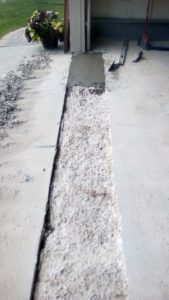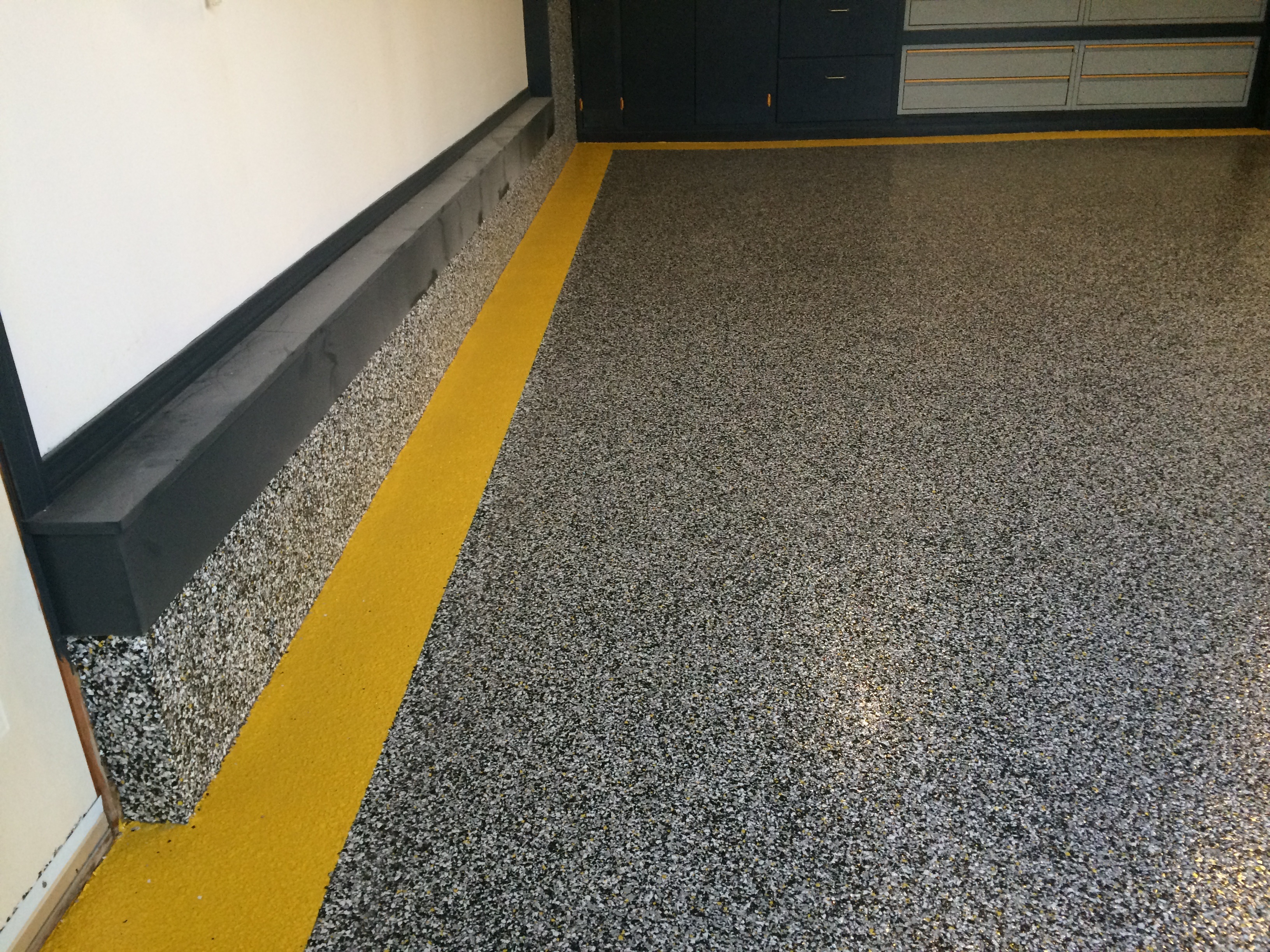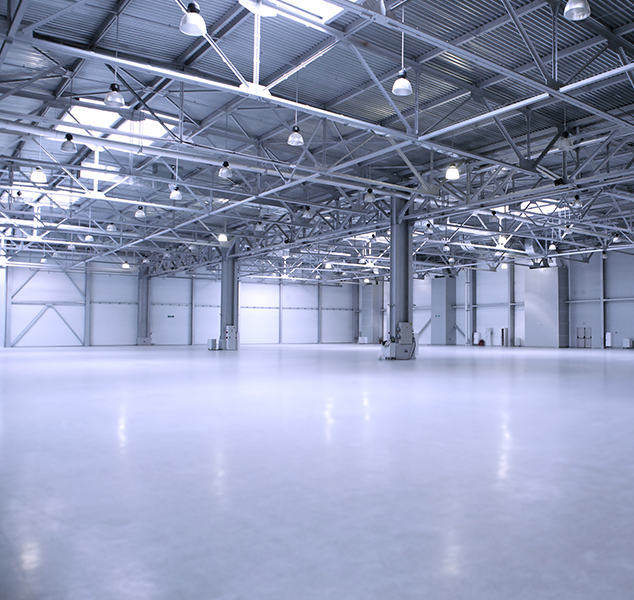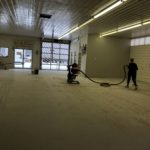In Canada road salt is used to control ice on roadways. At the right temperature range the salt melts the ice. Pretty simple concept. Here’s the problem.
When the ice turns to water, as in your garage, this salty brine get absorbed into your slab.
When the brine gets diluted enough from the water than the water freezes inside the slab which causes the surface to ‘spall’ . Once the surface is opened to the elements, your concrete can deteriorate very quickly, and what was once a small problem can turn into a big problem in a season or two.

So what can you do? Seal your concrete with a high build sealer, or better yet seal your concrete with flake system like our 123 flake system.
By putting down our flake system you create a space that is very attractive and it protects your concrete from further damage. In addition you create a much safer surface to walk on and thus helps prevent falls.
Depending on how the space is used a 123 flake system can last for many years. The great thing is that you can recoat the surface to regenerate it.
Best of all the price is very reasonable. When you factor replacement costs of a concrete slab the cost to seal and protect your floor is well worth it.




Leave a Reply
Want to join the discussion?Feel free to contribute!